The Eight Competencies
About
NSA established eight professional competencies in 1986, based on the work of Jim Cathcart, CSP, CPAE. At the time, competency-based education was rare. We discovered that the original framework here was built to bring relevant content and mastery of the speaking industry to our members. Since then, professional associations and corporations have recognized the value of competency-based learning and more and more organizations are moving in this direction.
These competencies build on and honor both our original competencies, the 4Es, and the NSA definition of Platform Mastery. Based on our research of past professional development plans, current industry trends, and skills that speakers at the top of the industry use today, we believe that the Eight Competencies will help professional speakers master their craft and propel their business, and ensure NSA offers relevant programming. And this Professional Speaker Competency Model coupled with the NSA Code of Professional Ethics establishes standards to foster excellence within the speaking profession, thus benefiting all professional speakers.
Our commitment to these competencies will make it easier for members to obtain mastery of their profession, and to stay on top of cutting-edge industry trends. We believe that these competencies are the most important elements for any speaker to master, and we are dedicated to providing you with the tools you need to maximize your success in the industry.
Environmental Trends and Impact
The skills to remain aware of the current business landscape, audience profiles & needs, and best practices to drive effective communication and platform skills. And, the ability to research, translate and synthesize environmental trends, including economic, technological, and geographical trends and emerging capabilities to grow a business and effectively communicate current, relevant content.
Professionalism
The ability to effectively build essential trust with stakeholders, including respectfully and honestly communicating with several types of industry associates—other speakers, those who hire speakers, and those who support speakers with products and services. Demonstrating ethical behavior, performance, and delivery style that is congruent with the professional image among the public, clients, and peers.
Content Development
The capability to select, research, develop, and protect valid and original work. A demonstration of critical thinking, including integrating diverse viewpoints, and skills to deploy techniques to stay on the cutting-edge of topic selection and development.
Product Development
An understanding of adult learning concepts and the ability to convert speaking and training topics into marketable products, such as consulting, books, podcasts, blogs, videos, and eLearning.
Platform Mechanics
The ability to setup or stage the environment, including preparing the room, backdrop or stage, using appropriate props, and using appropriate equipment for a successful presentation or performance.
Performance Mastery
The art of speaking and the use of powerful and persuasive communication to ignite change through various platforms, including speech, workshops, virtual presentations, podcasts, and so on. The knowledge and skills of presenting or performing to effectively communicate with and engage the audience, whether in-person or virtual, including word choice, structure, timing, voice inflection, movement, story-telling, and interactivity.
Business Development
Comprehensive sales and marketing skills and techniques to generate speaking engagements and expand the impact of messages through product sales. Skills to build a brand, develop marketing and sales funnels, conduct lead generation, build effective marketing collateral, leverage communication platforms including social media, implement the 4Ps (product, price, place, promotion), effectively negotiate, and develop contracts.
Strategic and Operational Business Management
Ability to develop and implement a robust strategy to effectively manage the business side of speaking activities, including an understanding of business models, risk mitigation, due diligence, technology roadmap, financial literacy and planning, managing the lifecycle of the business, adhering to laws and regulations, and plans to operate the business.
